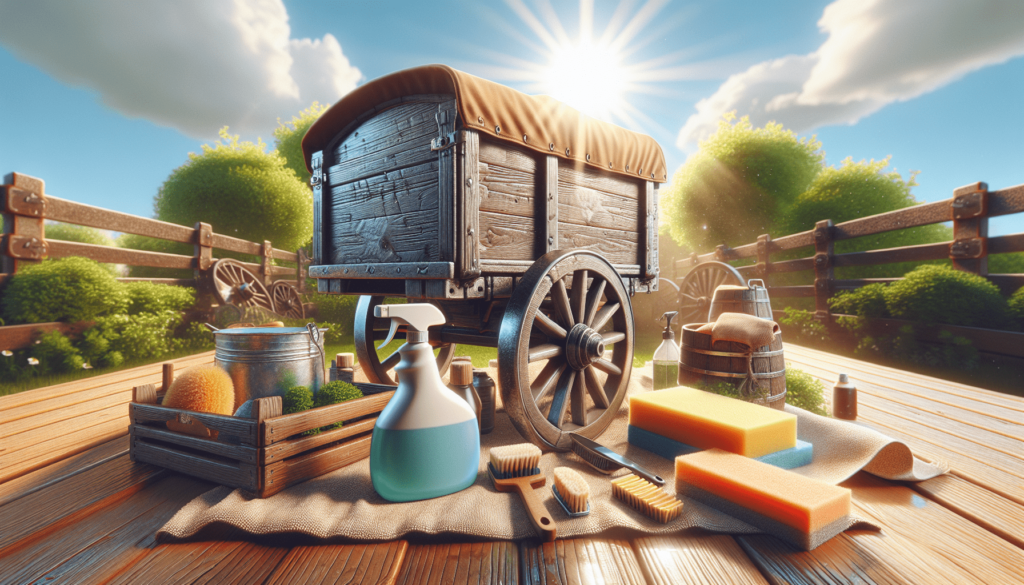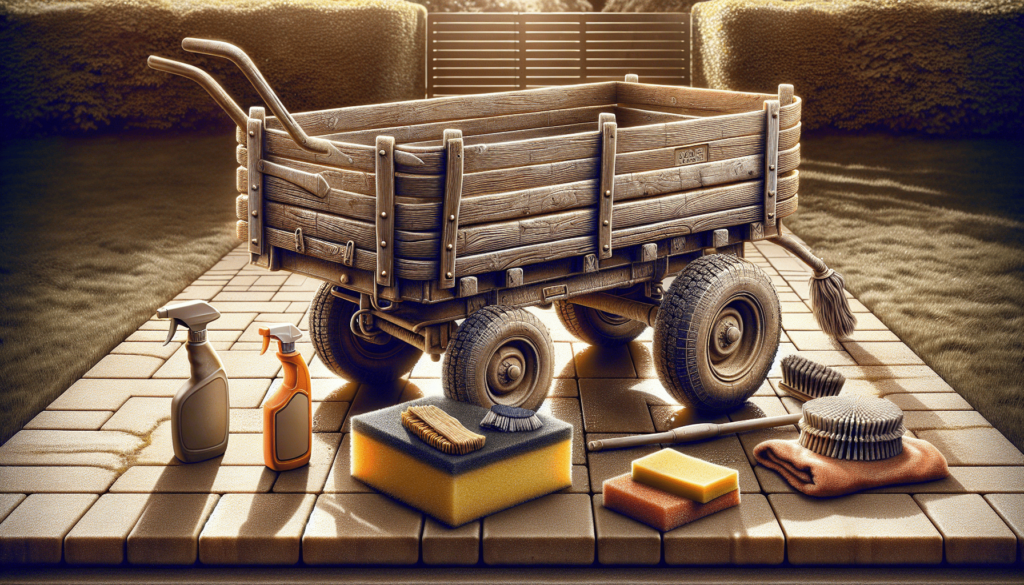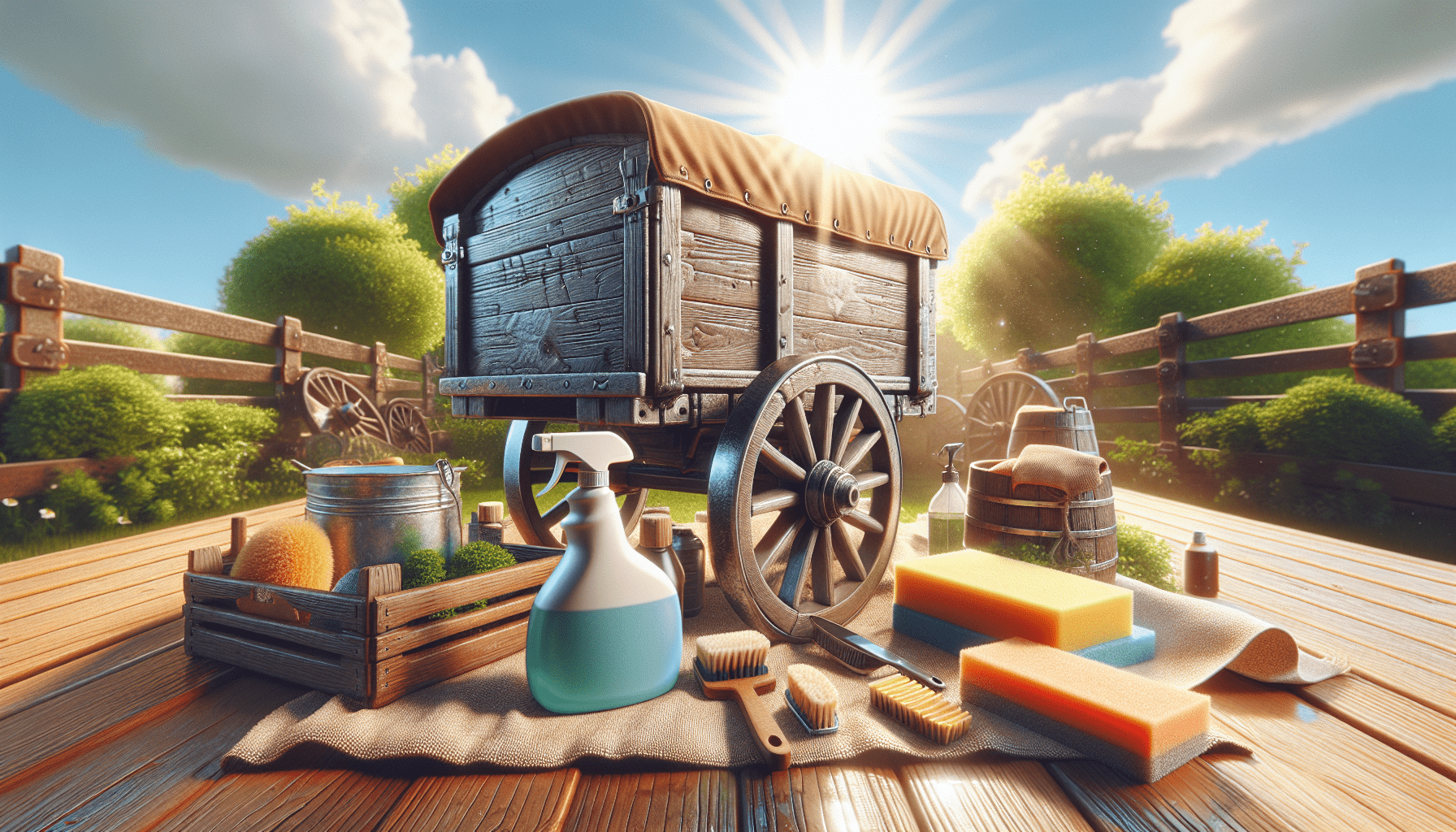What do you do when your heavy-duty wagon has seen better days, covered in dirt and grime from weeks of outdoor adventures? Keeping that sturdy companion in top-notch condition is vital for its longevity and performance. Let’s talk about how to clean and care for your heavy-duty wagon so it can keep serving you well.

Understanding Your Heavy-Duty Wagon
Before jumping into cleaning and care tips, it’s helpful to understand what makes heavy-duty wagons unique. They are built to withstand rough conditions and are often used for transporting heavy loads, whether it’s kids to the park, gardening supplies, or camping gear.
Types of Heavy-Duty Wagons
There are generally two main types of heavy-duty wagons:
- Metal Wagons: These are typically constructed from steel or aluminum. They tend to be more durable but may rust if not properly cared for.
- Plastic Wagons: Often made from high-density polyethylene, these wagons are lightweight, rust-resistant, and easy to clean but can be prone to scratching.
Understanding the material your wagon is made from will help you choose the right cleaning and maintenance methods.
Cleaning Your Heavy-Duty Wagon
Cleaning your wagon should be a regular part of its maintenance routine. It’s not just about aesthetics; a clean wagon performs better and lasts longer.
Gather Your Supplies
Start by gathering your cleaning supplies. Here’s a simple list to help you out:
| Cleaning Supplies | Purpose |
|---|---|
| Mild detergent | To remove dirt and stains |
| Soft-bristle brush | For scrubbing surfaces |
| Clean cloth or sponge | To wipe down surfaces |
| Buckets of warm water | For rinsing and mixing cleaning solution |
| Hose with spray nozzle | For rinsing off detergent |
| Plastic scrub pad (optional) | For tougher stains on plastic wagons |
Once you have these supplies, you’re ready to start!
Step-by-Step Cleaning Process
-
Remove Debris: Start by emptying your wagon of any items, dirt, or leaves. A quick shake can help remove loose debris.
-
Mix Cleaning Solution: In a bucket, mix a small amount of mild detergent with warm water. Avoid using harsh chemicals as they can damage the materials.
-
Scrubbing: Using your soft-bristle brush, scrub the surfaces gently, focusing on areas that are particularly dirty. For metal wagons, be cautious not to scratch the surface.
-
Target Stains: If you notice stubborn stains, use a plastic scrub pad. Remember to test any cleaning method on an inconspicuous area first.
-
Rinse Thoroughly: Use a hose to rinse off all the detergent, ensuring no residue remains as it can lead to corrosion for metal wagons.
-
Dry Completely: Use a clean cloth or sponge to dry the wagon. Leaving it wet can lead to rust or mildew, especially with metal models.
Inside Matters Too
Don’t forget to clean the interior of your heavy-duty wagon. If you transport items like soil or other difficult substances, the inside may need extra attention. Simply repeat the cleaning process inside as well.

Caring for Your Heavy-Duty Wagon
Once you’ve got your wagon spotless, it’s time to think about caring for it over the long haul. Regular maintenance can prevent small issues from becoming bigger ones.
Regular Inspections
Every few months, perform a thorough inspection of your wagon. Check for:
- Wheels and Tires: Look for any damage and ensure they are inflated properly and turning freely.
- Frame Integrity: Check the frame for any cracks or rust spots. Address these issues early to avoid larger problems.
- Handles and Accessories: Ensure that handles, canopies, or any additional features are securely attached and functioning well.
Lubricate Moving Parts
Most heavy-duty wagons have moving parts that require lubrication to function smoothly. Use a silicone-based lubricant for the wheels and any hinges or joints. A little goes a long way, so don’t overdo it.
-
Wheel Maintenance: Take off the wheels if possible, and clean the axles before applying the lubricant.
-
Hinge Care: For any movable parts, apply lubricant to avoid squeaks and friction.
Store It Properly
Where and how you store your wagon matters just as much as how you clean it. Here are some tips:
- Choose a Dry Location: Store your wagon in a dry garage or shed to prevent moisture accumulation, which can lead to rust for metal wagons.
- Keep it Off the Ground: If possible, elevate your wagon slightly to protect it from ground moisture. Using wood pallets or sturdy blocks can achieve this.
- Cover It Up: If stored outside, use a weather-resistant tarp or cover to shield from the elements.
Repairing Common Issues
Even with the best care, issues may arise. Knowing how to address them can extend the life of your wagon.
Flat Tires
If you notice a flat tire, check the air pressure. For rubber wheels, inflate them back to the recommended PSI. If it remains flat, inspect for punctures. A simple tire patch kit can fix small holes.
Rust Treatment
For metal wagons, rust can be a concern. If you see rust spots, you can use sandpaper to smooth it out, followed by a rust-inhibiting primer. Touch up with paint designed for metal to protect against future rust.
Worn-Out Parts
If your wheels or handles start to wear down, consider replacement parts. Many manufacturers offer spare parts specific for their models, making it easy for you to replace anything that’s worn out.
Seasonal Considerations
Different seasons can present unique challenges for your heavy-duty wagon. Here’s what to keep in mind:
Spring Cleaning
After a long winter, it’s a great time to give your wagon a thorough cleaning. Check for any winter damage, wash it down, and replenish any lubricants.
Summer Care
During the summer, the sun can fade colors or damage materials. If possible, use your wagon in shaded areas to reduce UV exposure. Regularly clean it, as outdoor activities can leave sticky residues from foods or drinks.
Autumn Upkeep
As leaves fall, be mindful of debris getting trapped in the wheels or frame. Remove leaves promptly to prevent mold or residue buildup.
Winter Storage
When

